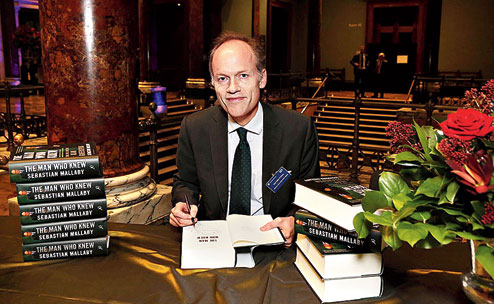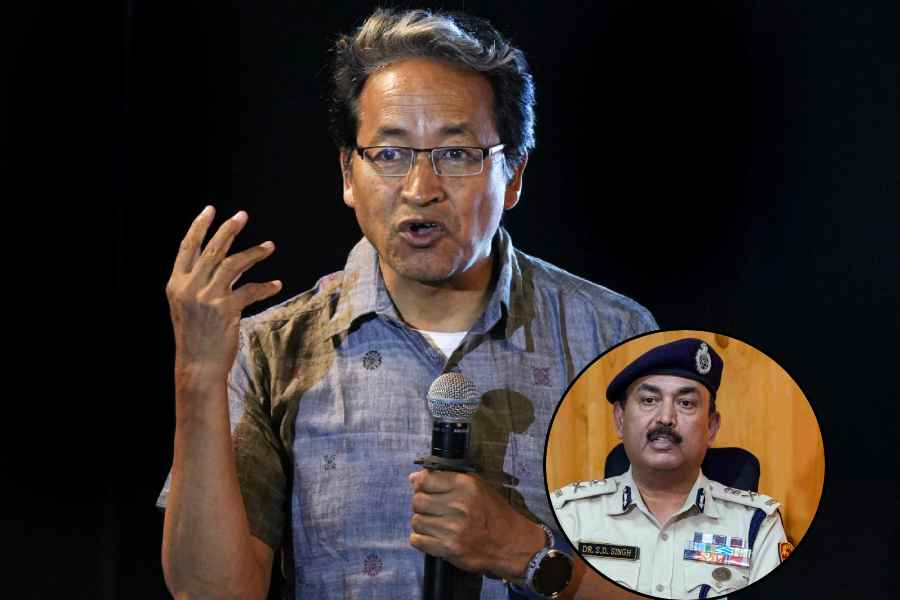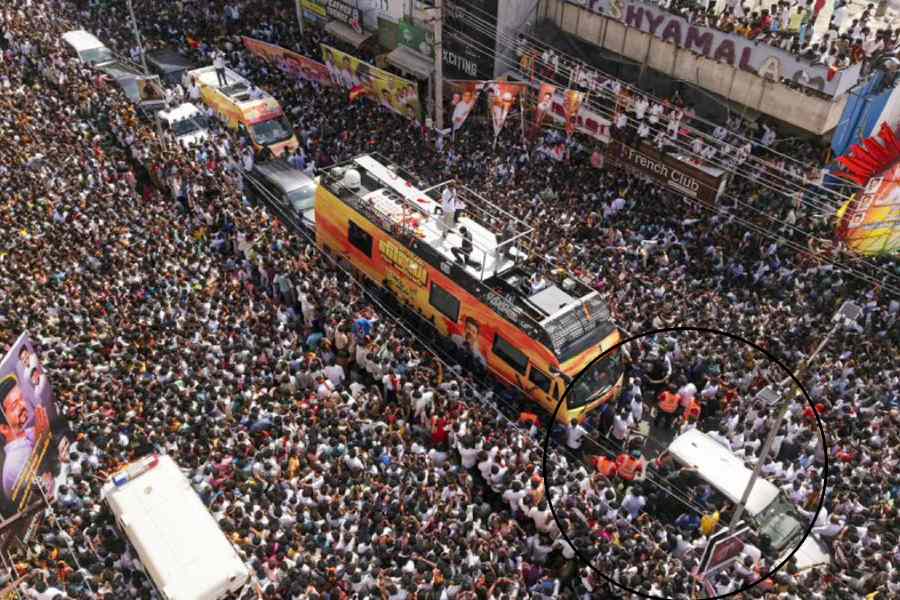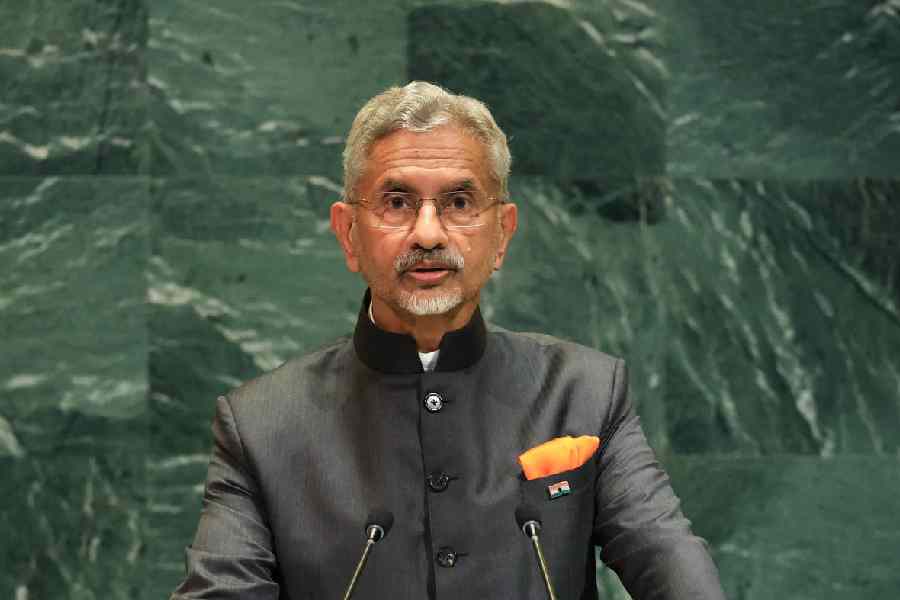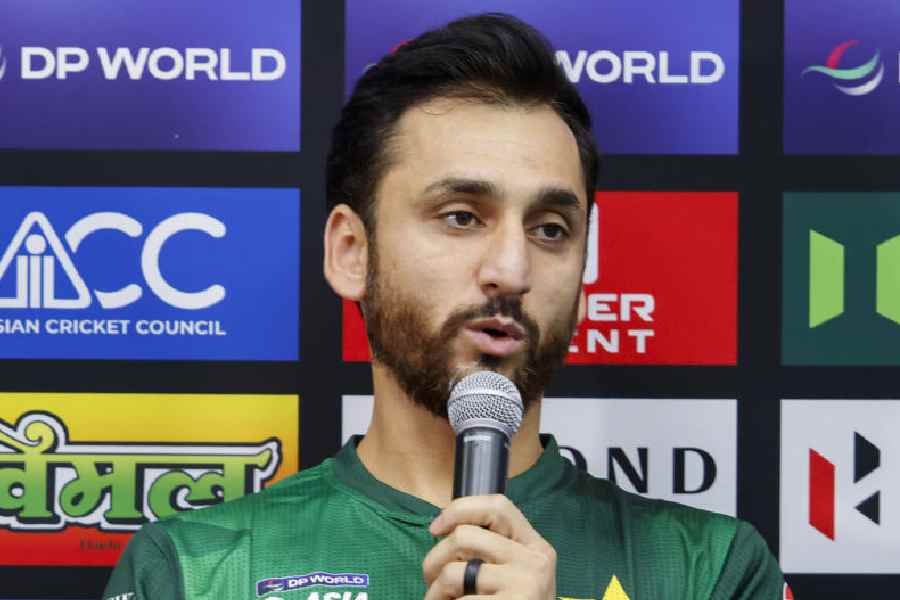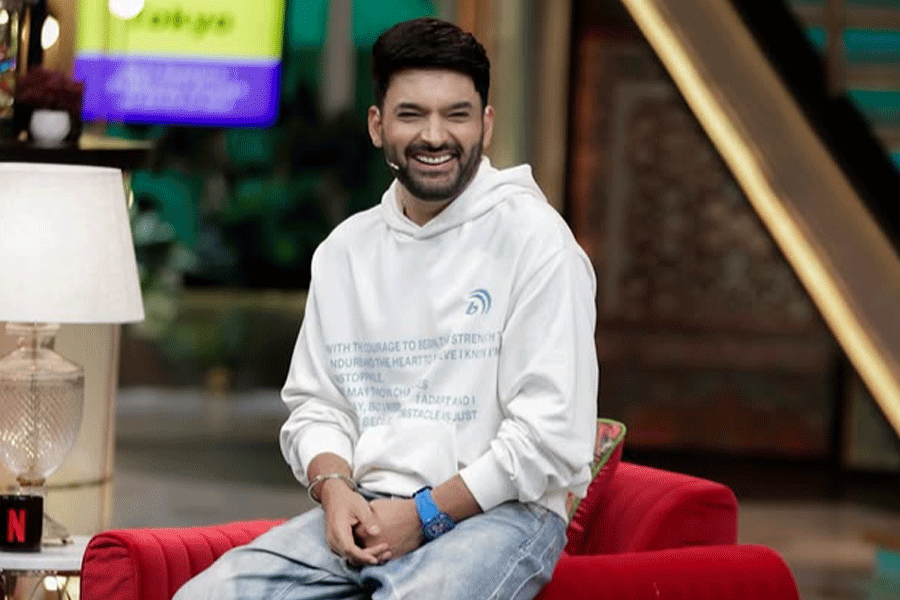No business like Business book business

Coming out of the National Gallery last week, clutching a heavy goody bag containing all six books shortlisted for this year’s Financial Times and McKinsey Business Book of the Year, I bumped into the winner, Sebastian Mallaby, a Brit who used to work for the FT and The Economist and is now a contributing Washington Post columnist.
He won the £30,000 prize for his painstakingly researched biography of Alan Greenspan, 90, who served as the chairman of the Federal Reserve of the United States from 1987 to 2006 and was once deemed the world’s most powerful
economist.
“I live in London but work in Washington,” said Mallaby, but was ushered away as he was explaining his transatlantic travel arrangements.

It will take me a while to get through Mallaby’s no doubt entertaining 781-page doorstopper, The Man Who Knew: The Life and Times of Alan Greenspan (Bloomsbury; £25). The author, helped by a team of researchers, spent five years digging up stuff on his subject so that by the end, he knew Greenspan’s taste in cars (a 1959 “Buick convertible with tail fins and red leather seats”) and women (“news anchors, senators and beauty queens”).
The FT review of the book revealed that “when President Bill Clinton was asked by a journalist what it was like to be the most powerful man in the world, he famously pointed to Andrea Mitchell, NBC’s White House correspondent, and said, ‘Ask her. She’s married to him.’ The husband in question was Alan Greenspan, then chairman of the US Federal Reserve.”
According to Mallaby, “The story of Alan Greenspan is also the story of the making of modern finance.”
Ironically, Greenspan’s own autobiography, The Age of Turbulence, was shortlisted in 2007, “the year before the financial crisis raised serious questions about the central banker’s legacy” — but he didn’t win.
It so happens that Raghuram Rajan’s Fault Lines: How Hidden Fractures Still Threaten the World Economy was shortlisted in 2010 — and won.
Was it really such a good idea to get rid of Rajan as RBI governor?
Bracken Prize
The FT’s Business Book of the Year, the pre-eminent event of its kind, partnered first with Goldman Sachs and subsequently with McKinsey, is in its 12th year but this is the first time a biography has won.
This year’s dinner in the National Gallery was in a hall adorned with masters from the past.
The hosts, Lionel Barber, editor of the FT, and Vivian Hunt, McKinsey’s managing partner in the UK and Ireland, introduced the shortlisted books — and this year’s keynote speaker, Baroness Dido Harding, CEO of TalkTalk, the Internet provider.
The other five shortlisted titles, which all won £10,000, were: The Rise and Fall of American Growth by economist Robert
Gordon; What Works, Iris Bohnet’s guide to how organisations can help offset unconscious bias against women and manage diversity; Lynda Gratton and Andrew Scott’s The 100-Year Life, on the threats and opportunities of growing longevity; Makers and Takers, Rana Foroohar’s critique of the dominance of high finance; and Alibaba: The House that Jack Ma Built, Duncan Clark’s inside account of the rise of the Chinese Internet company and its founder.
The £15,000 Bracken Bower Prize, awarded to the best business book proposal by a writer aged under 35, went to Nora Rosendahl, who wants to do a book about “mental meltdown, analysing increasing rates of burnout, exhaustion and stress”.
I would encourage Indians to submit books and ideas next year.
More R&D

Perhaps students at India’s business schools should risk an essay on the following theory by Lord Kumar Bhattacharyya, 76, founder-chairman of the Warwick Manufacturing and without doubt the most influential Bengali in Britain.
Lord B, Ratan Tata’s close friend for 40 years, tells me even the best B-schools do more harm than good because they teach their students to be managers and not actually to make innovative products.
India needs more R&D, he argues, not just the ability to manufacture under licence what others have invented.
Does Lord B have a point?
Easy rider
Going to the London Stock Exchange for the start of trading produced an encounter with Michael de Jong, finance minister of the Canadian province of British Columbia, the first foreign government to take out a masala bond.
This had resulted directly from Narendra Modi’s visit to Vancouver in April 2015, said de Jong, who has been to India 12 times, including thrice this year.
When his duties are done, he confided, “I get an Enfield motorcycle and go for pleasure mostly down the west coast south of Mumbai through Goa”.
Indian, fallen
Has December 6 been chosen as the day when we will remember the Indian soldiers who fell in two World Wars?
The idea apparently has the backing of Narendra Modi, according to Nitin Palan, who runs a UK charity, Golden Tours, and who spoke last week at the Zoroastrian Centre in north London, where an inter-faith meeting had been organised to pay tribute to the 1.3 million Indian soldiers who fought for Britain in World War I — 53,486 were killed, 65,175 wounded, 5,874 went missing and 12,394 taken prisoner by the enemy.
Indian governments once ignored the soldiers because they were considered to have fought in someone else’s war but, of late, there has been growing recognition of their valour and their willingness to sacrifice their today so that others could have their tomorrow.
Tittle tattle
Theresa May’s government has reacted badly to Donald Trump’s tweet suggesting UKIP leader Nigel Farage should “represent Great Britain as their Ambassador to the US. He would do a great job!”
Downing Street said there was “no vacancy” since career diplomat Kim Darroch, appointed in January for four years, was doing a perfectly good job.
I consulted Lord Swraj Paul who, during Mrs Indira Gandhi’s time, was dubbed India’s “Higher Commissioner in London” when Dr Seyid Muhammad was merely the high commissioner.
What Trump had suggested “was a joke”, he laughed.
The British government wishes it was.

